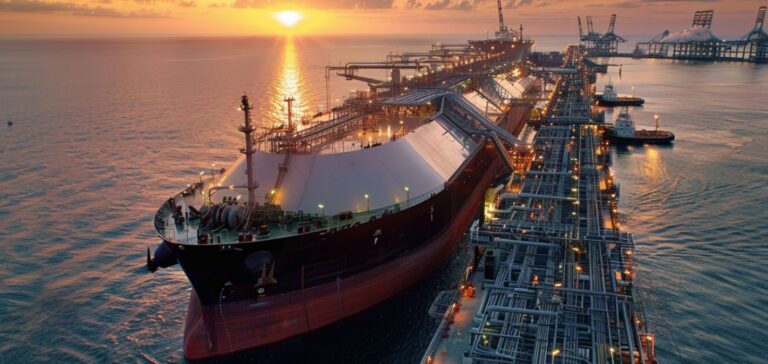Natural gas continues to play a strategic role in the global energy transition. According to the latest report from Wood Mackenzie titled “The Bridge: Natural Gas’s Crucial Role as a Transitional Energy Source”, while renewable energy is expanding, natural gas remains essential for meeting global energy needs and reducing emissions in the medium term.
Massimo Di Odoardo, Vice President of Gas and LNG Research at Wood Mackenzie, points out that global gas demand has increased by 80% over the past 25 years, now meeting nearly a quarter of the world’s energy needs. This growth is driven by the abundance of global resources, relatively low production costs, and the comparative environmental advantages of gas over other fossil fuels.
The Role of Gas in Emission Reduction
Natural gas is a cleaner alternative to coal. In fact, it produces half the carbon dioxide (CO2) of coal and 70% of that of oil when burned. Moreover, gas-fired plants generate less pollution, making it the cleanest fossil fuel option. Replacing coal with gas has already led to significant CO2 reductions, particularly in Asian markets where coal dependence remains high. Gas, particularly in the form of LNG (liquefied natural gas), serves as an important tool for decarbonizing these regions.
Gas-fired plants also play a critical role in providing reliable and flexible supply, thus supporting the integration of intermittent renewable energy sources into electricity grids. Additionally, gas can serve as a catalyst for the development of other low-carbon technologies, such as carbon capture and storage (CCS) and low-carbon hydrogen.
Challenges to Overcome
However, the report also highlights several challenges hindering widespread adoption of natural gas. In Asia, high LNG prices since 2022 threaten to limit its use, particularly in replacing coal. A carbon price of around USD 100 per tonne would be needed to drive meaningful change in this regard. The report notes that in China and India, where gas is primarily used for peak shaving, gas demand is expected to increase by nearly 100 billion cubic meters by 2050. In these countries, replacing baseload coal with gas appears difficult without a sufficiently high carbon price, though such a shift could reduce over 300 million tonnes of CO2 by 2035.
Reducing the Carbon Impact of Natural Gas
The report also underscores that, while gas and LNG generate significant greenhouse gas (GHG) emissions, claims that the LNG value chain is more GHG-intensive than coal are unfounded. Wood Mackenzie’s analysis shows that, on average, LNG has about 60% lower GHG intensity than coal. Even when considering the 20-year global warming potential (GWP), LNG remains 26% less GHG-intensive than coal burned in highly efficient plants.
Nonetheless, the report stresses that CO2 and methane emissions from gas must be urgently addressed to ensure its long-term viability as a bridge fuel.






















